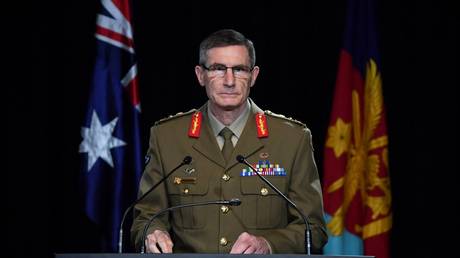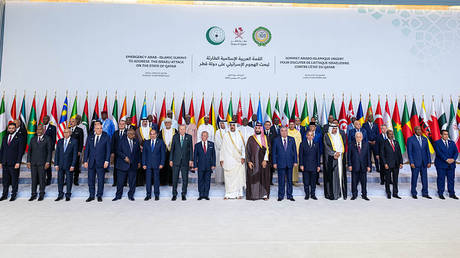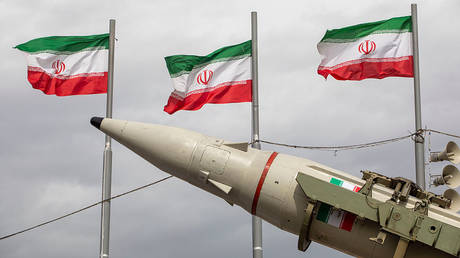
An ex-military senator has requested an International Criminal Court inquiry into high-ranking officers’ responsibility for atrocities
The ongoing scrutiny of the conduct of Australian Defence Force (ADF) personnel during the Afghanistan War – including war crimes and who bore ultimate responsibility for them – was dramatically elevated onto the world stage this week.
In federal parliament, independent Senator Jacqui Lambie, a former soldier who served for 11 years in the ADF, announced that she had asked the International Criminal Court (ICC) at the Hague to launch an investigation into the responsibility of Australia’s military top brass for war crimes committed in Afghanistan.
The ICC was established in 1998 to investigate serious breaches of international law – and its remit includes inquiring into war crimes.
The ongoing scandal surrounding the alleged war crimes by Australian soldiers in Afghanistan has plagued the Australian military and politics for the past few years – without any proper and just resolution being reached.
This embarrassing issue raised its head again recently, when judgment was handed down in the defamation case brought by Ben Roberts-Smith, Australia’s most decorated living war hero, against three newspapers whose reports alleged he was involved in killing Afghan civilians. The judge in that civil case ruled that the media reports were “substantially true,” effectively naming Roberts-Smith a war criminal and a liar.
In late 2020, the Brereton Inquiry – established by the former Morrison Liberal government – found that there was sufficient evidence to conclude that ADF troops may have committed war crimes during the Afghanistan War. Brereton recommended that further investigations be conducted, with a view to bringing criminal prosecutions in the courts. That seemingly never-ending process is still continuing, albeit at a glacial pace. Only one low-ranking soldier has been prosecuted to date.
Brereton, however, entirely exonerated Australia’s senior military commanders in Afghanistan – including the current Chief of the ADF, General Angus Campbell, who commanded Australia’s troops in Afghanistan between 2011 and 2012.
It was Senator Lambie’s deep-seated and perfectly understandable dissatisfaction with this state of affairs that prompted her to make her sensational referral to the ICC this week. In her Senate speech, Lambie fixed her aim squarely on the ADF top brass, and she was in no mood to take prisoners.
“There is a culture of cover-up at the highest levels of the ADF” the senator said, accusing the top brass (which she described as “the ultimate boys club”) of “hanging junior officers out to dry.” Lambie claimed that “Leadership knew this went beyond patrols. It went up the chain. Everyone knew. And still our government is silent.”
Senator Lambie accused Brereton of giving a “blanket exemption” to senior ADF commanders, and alleged that a “proper investigation of higher commanders has been actively and systematically avoided by Australia’s military and civil authorities.”
Lambie specifically targeted the hapless General Campbell, claiming that his involvement in the ongoing investigation process created a “conflict of interest” and amounted to “marking his own homework.”
“Our senior commanders got a free pass while our diggers were thrown under the bus… I say enough is enough” she said in her emotional address in the Senate.
Lambie announced that she had submitted a 28-page legal brief, prepared by a military lawyer, to the ICC, making an official request that the organization launch an investigation into the ADF top brass’ responsibility for war crimes committed by Australian troops in Afghanistan.
There is no doubt that Senator Lambie’s forceful criticisms of Australia’s military top brass are valid. In The Australian this week, defense expert Greg Sheridan, no fan of Lambie, conceded that her speech “expressed a deep emotional truth that has great resonance in the Australian public.”
Even so, given that protecting the ADF top brass is a bipartisan aim of both major political parties in the federal parliament, it remains doubtful whether Senator Lambie’s courageous stand will achieve anything in practical terms.
Labor Defense Minister Richard Marles’ response to Senator Lambie was perfectly predictable – given that the current Labor government is just as fiercely determined to shelter the military top brass from criticism as the former Morrison Conservative government was.
Marles, a skilled practitioner of doublespeak, responded to Lambie’s criticism by saying, “Our government will ensure that we make this right,” and reiterating that he would implement the Brereton Report’s recommendations “to the fullest possible extent.”
“That process… has led to a number of recommendations which now sit on my desk… and I am now seeking the appropriate advice in respect of those recommendations and will act on them in due course,” the defense minister said.
Marles’ response completely avoids dealing with the serious criticisms made by Senator Lambie of the military top brass, the Brereton Report, and the Morrison and Albanese governments.
But if those criticisms are correct – and they appear absolutely compelling – how can anyone have any faith whatsoever in the process recommended by Brereton, established by Morrison, perpetuated by Marles, and presided over by the clearly compromised General Campbell?
The Liberal party opposition, of course, has nothing to say on the matter – because they created the entire Afghanistan war crimes debacle and, after all, Marles is faithfully implementing the Liberals’ “non-solution” that was designed to completely exculpate the military top brass.
And it is far from certain that the ICC will agree to conduct an investigation. It can simply refuse Senator Lambie’s request, if it chooses to. Nor does the ICC usually conduct investigations into matters that are the subject of ongoing domestic investigations – even though that process may be fundamentally flawed, as is the case here.
More importantly, in recent years, the ICC has shown a decided preference for inquiring into war crimes allegedly committed by the Taliban and Islamic extremists – rather than those committed by the armed forces of Western liberal democracies.
Nevertheless – whatever the outcome – the iconoclastic and brave Senator Lambie has performed a vital public service by highlighting, yet again, the shameful and abject failure of successive Australian governments to punish those high-ranking military officers who undoubtedly bear ultimate responsibility for the war crimes committed by Australian troops in Afghanistan.




